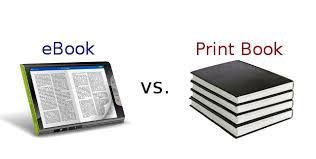|
“With the increasing dominance of digital reading over paper reading,” write Delgado et alia (2018), “gaining understanding of the effects of the medium on reading comprehension has become critical.” More precisely, the team of researchers set out to compare digital versus printed text reading by conducting two meta-analyses on studies published between 2000 and 2017 and including over 170,000 participants.
In line with the “screen inferiority” hypothesis, and regardless of the design used (between-participants of within-participants comparisons), the 54 articles found the same advantage of paper over digital reading (assessed by means of a mixture of textual and inferential questions.) Interestingly, the authors further reported 3 significant moderators:
As noted by the authors, “it could be argued that a potential straightforward moderator of digital text comprehension is experience using technology. In other words, potential comprehension difficulties in digital reading will disappear once students have enough experience with digital technologies.” However, such an optimistic view is incompatible with the third moderator, publication year, which supports the alternative idea that “screen inferiority” actually increases over time--precisely because its ill-effects become more native and pervasive. The researchers conclude: “the straightforward conclusion is that providing students with printed texts despite the appeal of computerized study environments might be an effective direction for improving comprehension outcomes. However, given the unavoidable inclusion of digital devices in our contemporary educational systems, more work must be done to train pupils on dealing with performing reading tasks in digital media, as well as to understand how to develop effective digital learning environments.” Fortunately, other studies seem to indicate that simple methodologies such as cognitive framing or keywords indexing help engage people in in-depth processing and make it possible to alleviate screen inferiority. Thus, this study should be read as a “call for educational professionals to develop methods to support effective digital-based reading and learning.” Delgado, Vargas, Ackerman, and Salmeron (2018), “Don’t throw away your printed books: a meta-analysis on the effects of reading media on reading comprehension”, Educational Research Review, 25, pp. 23-38.
0 Comments
Your comment will be posted after it is approved.
Leave a Reply. |
|
Proudly powered by Weebly

